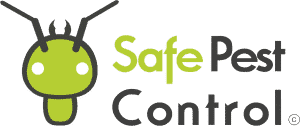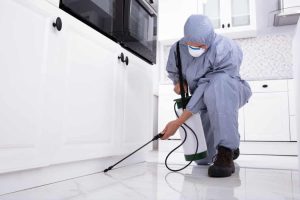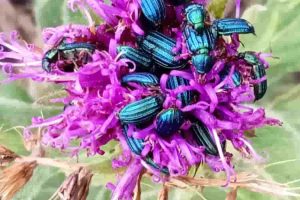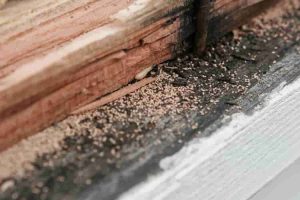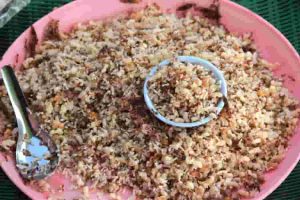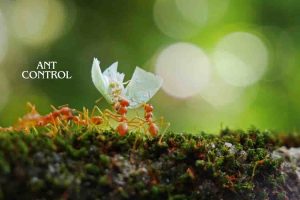German cockroaches (Blattella germanica) are notorious pests, often thriving in warm, humid environments. Climate change has the potential to significantly impact their populations and the methods used for their control. As global temperatures increase, these resilient pests may find new habitats more suitable, leading to widespread infestations.

Rising temperatures can accelerate the reproduction cycle of German cockroaches, making them even more difficult to manage. Increased warmth can also enhance their resistance to traditional pest control methods, such as insecticides, making it imperative to explore alternative solutions. For example, integrating non-chemical tactics like improved sanitation and structural modifications can be vital in long-term cockroach management.
By understanding how climate change influences German cockroach populations, we can better prepare and implement more effective control measures. Contact Safe Pest Control today and schedule a pest control treatment for your property. This proactive approach can help mitigate the challenges posed by these pests in a changing climate.
Biology and Ecology of German Cockroaches
German cockroaches, known scientifically as Blattella germanica, are among the most common household pests. Understanding their biology and ecology, including their distribution, adaptability, reproduction, and impact as invasive species, is critical for effective pest management.
Distribution and Adaptation
The German cockroach is found worldwide, particularly in human-built environments such as homes, apartments, and commercial facilities. They thrive in areas with high humidity and warmth.
Interestingly, despite their name, they have no close relatives in Europe; their closest relatives are in Africa and Asia. Their widespread distribution can be linked to human activities, including globalization and the advent of long-distance transportation, which has facilitated their dispersal.
These cockroaches are highly adaptable, capable of surviving in a range of environments by quickly adjusting to changes in temperature and humidity. Their ability to thrive in urban environments makes them particularly tough to control.
Reproduction and Life Cycle
German cockroaches reproduce rapidly, which contributes to their status as a major pest. A single female can produce up to eight egg capsules in her lifetime, with each capsule containing around 30-40 eggs.
The life cycle from egg to adult takes approximately 100 days, depending on environmental conditions such as temperature and humidity. Warm, humid environments can shorten this development period, leading to faster population growth.
Nymphs, or juvenile cockroaches, undergo several molts before reaching adulthood. Adaptations in their life cycle, such as rapid reproduction and development, allow them to maintain large populations, even in challenging conditions.
Invasive Species and Global Impact
As an invasive species, the German cockroach has had a significant global impact. Their spread is closely linked to human activities, particularly international trade and travel. Their ability to thrive in human habitats poses a threat to health and sanitation worldwide.
Infestations can lead to contamination of food and living areas. This can exacerbate allergies and asthma. Furthermore, German cockroaches are known for their resistance to many common pesticides, making them difficult to control once established.
Studies on their population genetic structure reveal their adaptability and resilience. This knowledge helps in developing targeted control strategies. Understanding their ecology and adapting our pest management approaches is essential in combating their spread.
Public Health and Allergens
Cockroach infestations can significantly affect public health by increasing asthma morbidity and allergen exposure. The presence of cockroach allergens in homes has been linked to respiratory issues and other health concerns.
Health Concerns Related to Cockroaches
Cockroaches are known to spread multiple diseases and exacerbate existing health problems. These insects can carry bacteria such as E. coli and Salmonella, which can contaminate food and surfaces in homes.
Additionally, cockroach droppings, shed skins, and saliva contain proteins that can trigger allergies. We must address these infestations promptly to safeguard human health. The control of cockroach populations through effective pest management can reduce these health risks.
Cockroach Allergen and Asthma Morbidity
Cockroach allergens are a significant trigger for asthma attacks, especially in children. Studies have shown that exposure to these allergens can increase asthma morbidity, leading to more frequent and severe symptoms.
In homes with heavy infestations, the concentration of allergens can be high enough to cause chronic respiratory issues. It’s crucial to minimize exposure by maintaining good sanitation practices and using integrated pest management techniques. This not only helps in reducing allergen levels but also improves overall air quality, contributing to better human health outcomes.
Contact Safe Pest Control today and schedule a pest control treatment for your property.
Challenges in Pest Management
German cockroaches have evolved in ways that make them particularly challenging to manage. Issues include resistance to insecticides and the need for integrated and innovative approaches to pest control.
Insecticide Resistance
Insecticide resistance is a significant problem in pest management. German cockroaches have developed resistance to various pesticides. Pest Control strategies must adapt to these changes. Resistance management involves rotating different classes of insecticides and using non-chemical methods to reduce resistance build-up.
Commonly, we encounter resistance to chemicals such as pyrethroids and organophosphates. The reduced efficacy of these chemicals complicates control efforts, requiring more frequent treatments or higher doses, which can be harmful to the environment. Implementing rotation schedules and combination treatments can help slow down the development of resistance.
Integrated Pest Management (IPM)
Integrated Pest Management (IPM) is vital for controlling cockroach populations. IPM combines multiple strategies to minimize reliance on insecticides. This approach includes monitoring, trapping, sanitation, and exclusion techniques.
For example, regular monitoring helps identify infestation levels and specific areas of activity. Traps and baits reduce the population without the need for extensive chemical application. Detailed sanitation practices, like removing food and water sources, disrupt the cockroaches’ habitat, reducing their ability to thrive.
Employing an IPM framework enhances long-term control while minimizing health risks and environmental impacts. By combining various strategies, we achieve a more sustainable method of keeping cockroach populations in check.
New Frontiers in Biological Control
Biological control offers promising new methods for managing cockroach infestations. Utilizing natural enemies like parasitic wasps or entomopathogenic fungi can help control cockroach populations without chemicals.
Biological agents target cockroaches specifically, reducing non-target impacts and environmental contamination. Research is ongoing to identify effective organisms and optimize their use. For instance, certain fungi have shown potential in infecting and killing cockroaches, providing a biological alternative to traditional insecticides.
As we continue to explore these biological control options, we will likely see more effective and environmentally friendly methods for managing pest populations. Combining these methods with existing strategies can enhance overall pest control efforts.
Contact Safe Pest Control today and schedule a pest control treatment for your property.
On-Time Service

5 STAR SERVICE BASED ON 100+ GOOGLE REVIEWS
PET & FAMILY FRIENDLY TREATMENT

ALL YEAR-ROUND PROTECTION
Take Back Control Now
8
REASON TO CHOOSE SAFE PEST CONTROL
- Guarantee protection all year-round
- 30 Years Collective Experience
- An impeccable reputation across Sydney's Suburbs
- Certified treatments & written Warranty On all work carried out
- Family Owned & Operated
- Rated #1 Pest Control In Sydney NSW
- No Mess, No Smell
- Family & Pet Friendly Treatments
REQUEST A QUOTE
